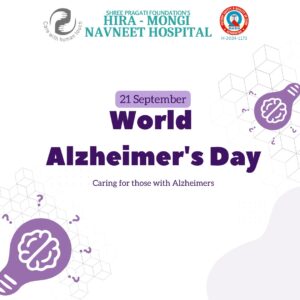ALZHEIMER’S DISEASE (Caring for Loved Ones with ALZHEIMER’S)
 WHAT IS ALZHEIMER’S DISEASE?
WHAT IS ALZHEIMER’S DISEASE?
Alzheimers disease is a neurological disorder that affects primarily older individuals by impacting their cognitive and functional abilities. Though the disease progresses progressively, some of the earliest symptoms include difficulty with short-term memory, mild confusion, decreased ability to plan and organize, and difficulty with decision making.
As the disease becomes more advanced, individuals may experience significant memory loss and may require assistance with basic daily activities. There is currently no cure for Alzheimer & disease, but treatments such as medication and lifestyle modifications can help manage symptoms and slow the progression of the disease.
Early detection is essential to managing the disease effectively.
It can seriously affect a person’s ability to carry out daily activities. Changes in the brain can begin years
before the first symptoms appear
THINGS THAT INCREASE THE RISK OF DEVELOPING ALZHEIMER’S INCLUDE:
· Family history of ALZHEIMER’S disease
· Head injuries
· High cholesterol
· Diabetes
· Smoking
· Obesity
· Lack of physical exercise
· Depression, and sleep disorders.
Other factors that may increase the risk of Alzheimer's disease include a history of long-term stress, exposure to environmental toxins, and certain infections. However, it is important to note that having one or more risk factors does not mean someone will definitely develop Alzheimer’s disease.
SIGNS AND SYMPTOMS OF ALZHEIMER’S:
· Forgetfulness
· Difficulty with familiar tasks
· Trouble with language
· Getting lost
· Poor judgment
· Mood or personality changes
· Individuals may forget important dates, events, or details,
· Have difficulty planning or completing tasks
· Struggle with finding the right words or following a conversation, become disoriented in familiar surroundings, make poor decisions, or experience mood swings or changes in personality.
These symptoms can worsen over time, leading to more serious impairments in memory, reasoning, and daily functioning. It is important to seek medical evaluation and treatment if one experiences these symptoms as early diagnosis and intervention can lead to better outcomes. Alzheimer’ disease progresses over time, typically advancing through mild, moderate, and severe stages. The rate of progression varies from person to person.
WHAT TO DO IF YOU SUSPECT ALZHEIMER’S DISEASE?
If you suspect Alzheimer,s disease in yourself or a loved one, it is important to see a doctor as soon as possible. The doctor may refer you to a specialist who can perform a thorough evaluation to determine if the symptoms are indeed related to Alzheimer,s disease or another condition that may be causing the symptoms.
Early intervention can lead to better treatment options and improved quality of life for those with Alzheimer’s disease and their families. It is also important to educate yourself about the disease and to seek support from organizations such as the Alzheimer’s Association.
HOW IS ALZHEIMER’S DISEASE TREATED?
Medical management can improve quality of life for individuals living with Alzheimer’s disease and for their caregivers. There is currently no known cure for Alzheimer’s disease. These treatments can improve memory and cognitive function, as well as non-drug approaches such as occupational therapy and physical exercise. Caregiver support and education is also important for managing the needs of individuals with Alzheimer’s disease and improving their quality of life.
Treatment addresses several areas:
· Helping people maintain brain health.
· Managing behavioral symptoms.
· Slowing or delaying symptoms of the disease.
HOW TO PREVENT ALZHEIMER’S DISEASE?
Prevention of Alzheimer's disease involves a healthy lifestyle, a healthy diet, and regular exercise. A diet rich in fruits, vegetables, whole grains, and healthy fats, such as Mediterranean-style diet has been linked to a reduced risk of developing ALZHEIMER’S. Exercise is also an essential part of a healthy lifestyle and is associated with a lower risk of developing ALZHEIMER’S. Other lifestyle factors that can help to prevent Alzheimer’s disease include getting enough sleep, managing stress, and staying socially engaged. Additionally, it’s crucial to maintain good overall health by managing chronic medical conditions like diabetes and high blood pressure. While there are no guaranteed methods to prevent Alzheimer’s disease, adopting a healthy lifestyle that includes regular exercise, a balanced diet, mental stimulation, social engagement, and management of cardiovascular risk factors (e.g., high blood pressure and diabetes) may help reduce the risk or delay the onset of symptoms.
Though those with ALZHEIMER’S might forget us, we as a society must remember them.


